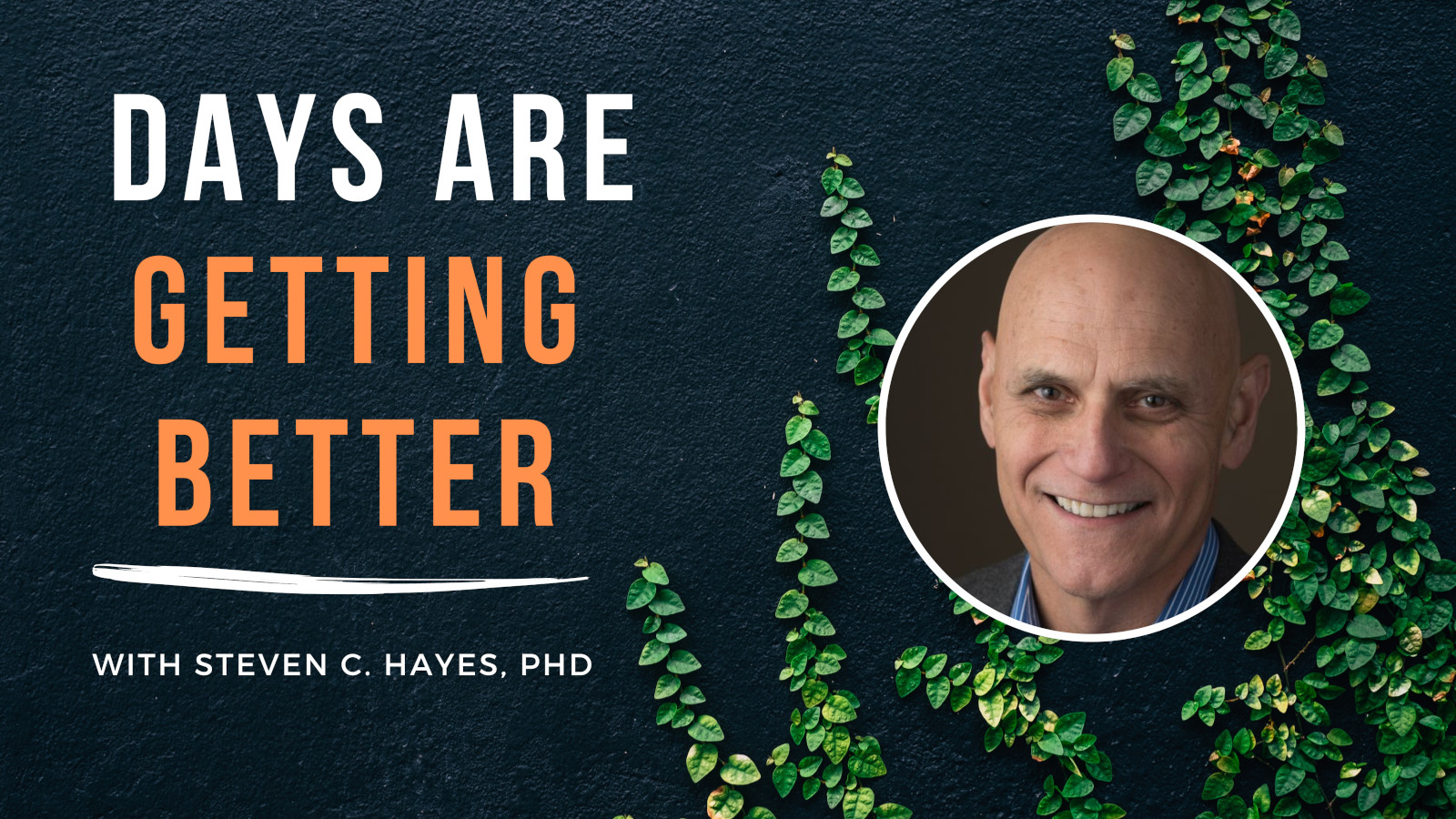When ACT first appeared on the scene in a big way, mainstream CBT was not exactly thrilled. In 2004 I’d declared the arrival of the “third wave,” in 2005 Get Out of You Mind and Into Your Life appears, and in 2006 a five-page story in Time Magazine about that book of mine cast ACT as a kind of rebel threat to CBT.
Stefan Hofmann protested loudly and forcefully in writing, and so I did what any good CBS person would do: I invited him to WorldCon! He came, and we did what one would expect – we argued loudly and forcefully – and overall just had a great time. (I could not get him on stage at the follies but he laughed more loudly than anyone when the whole audience repeated a take off of the “Horton Hears a Who” poem about ACT and CBT, shouting “we are here, we are here, we are here, we are here”).
Over the years our arguments became discussions and our discussions became collaborations. It turned out once again that what I’ve always believed was proven true: in science, bridges are stronger than walls.
Fast forward to today. Now good friends as well as colleagues, Stefan and I think we see a way forward for evidence-based psychotherapy.
For nearly 50 years intervention science has pursued the dream of establishing evidence-based therapy by testing protocols for syndromes in randomized trials. That era is ending.
The NIMH has turned away from the DSM as an avenue of progress. Transdiagnostic models, like ACT or the Unified Protocol, are getting stronger almost by the day. Projects such as the NIMH’s Research Domain Criteria (RDoC) are focusing attention on underlying mechanisms.
CBT prospered in the era of protocols for syndromes. Effective and widely disseminated, it nevertheless struggled in several areas – processes of change, theoretical development, clarity about philosophical assumptions. Overall it seemed that the core of CBT was beyond question until the arrival of the “third wave” shook the tradition to its foundation. New methods and new assumptions challenged the status quo. Now 13 years after its announced arrival, it is possible to look back and see it in a different light.
Superficially, it appeared as though the change was all about acceptance, or mindfulness, or values. It was far deeper than that.
Stefan and I have just written an article together in World Psychiatry that concludes that the most important thing about the “third wave” was that it anticipated the transition to a more process-based model of evidence-base care.
It is a short piece which the journal has made available free for downloading. If you want to see a pithy version of what we think the future contains, you can get the article here:
http://bit.ly/3rdWavetoProcessBased
And if you teach a course in psychotherapy, please consider adopting the first ever text in process-based CBT Stefan and I have edited. It is due out January 1 and puts meat on the bones of this World Psychiatry essay:
Hayes, S. C. & Hofmann, S. G. (2018). (Eds.), Process-based CBT: Core clinical competencies in evidence-based treatment. Oakland, CA: Context Press / New Harbinger Publications.
Drop me a note (stevenchayes@gmail.com) if you teach an intervention class or a class in CBT and want me to describe the book to you (it is a great book, truly).







